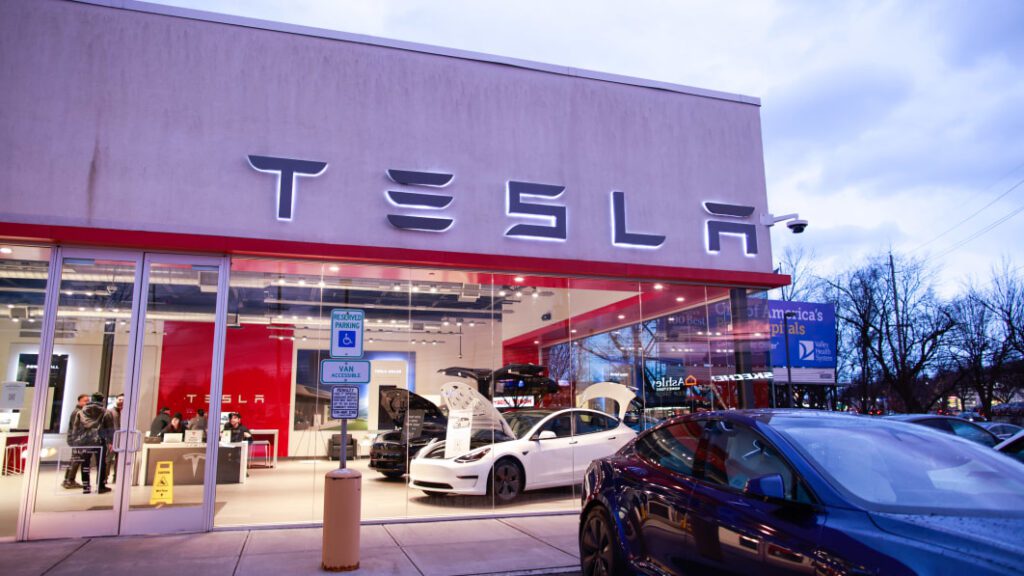New Jersey halts EV rebates for now — demand is too high

A Tesla store in Paramus, N.J. (Getty Images)
TRENTON, N.J. — New Jersey residents looking to buy or lease an electric vehicle won’t be able to get a government rebate — at least temporarily — because the state program is so popular that it’s already running out of money, officials said.
The Charge Up New Jersey program has disbursed an estimated $35 million for the fiscal year ending this July, according to the state’s Board of Public Utilities. The board said Monday it was putting the program on pause because all the earmarked funding will soon be disbursed, based on current rate of application approvals and eligible vehicle orders.
Now in its third year, the program gives state residents up to $4,000 right when they buy or lease a new electric vehicle. On average, EVs now cost more than $58,000, according to Kelley Blue Book, a price that’s beyond the reach of many U.S. households — though many EVs are much more affordable than that average price. Federal tax credits and other incentives are designed to bring prices down and attract more buyers, but eligibility is much more limited under new IRS rules that took effect this week.
New Jersey’s utility board estimates the state program will support the purchase or lease of more than 10,000 vehicles this fiscal year, and it should be back up and running again once the new fiscal year starts July 1. A spokesperson for the Board of Public Utilities, Peter Peretzman, said Tuesday he wasn’t sure if there are plans to increase the program’s funding for next fiscal year.
The utility board estimates that the program, since its launch in May 2020, will have provided more than $90 million in incentives for leasing or buying nearly 25,000 EVs.
At the end of the 2022 there were more than 91,000 electric vehicles on the state’s roadways, the board said, and EVs made up 8% of all new car sales in New Jersey last year.
New Jersey is among the states that have found success with electric vehicle incentive programs. A rebate program in Oregon will also have to pause next month because too many people are applying and the program is running out of money.
The Biden administration has proposed stiff automobile pollution limits that would require up to two-thirds of new vehicles sold in the U.S. to be electric by 2032, a nearly tenfold increase over current electric vehicle sales.
The proposed regulation, announced last week by the Environmental Protection Agency, would set tailpipe emissions limits for the 2027 through 2032 model years that are the strictest ever imposed. The proposed tailpipe pollution limits don’t require a specific number of electric vehicles to be sold every year but instead mandate limits on greenhouse gas emissions. Depending on how automakers comply, the EPA projects that at least 60% of new passenger vehicles sold in the U.S. would be electric by 2030 and up to 67% by 2032.
Still, a new poll released last week shows that many Americans aren’t yet sold on going electric for their next cars, with high prices and too few charging stations the main deterrents.
Environmental groups say stricter tailpipe pollution standards are needed to clean the air we breathe and prevent the worst of climate change’s future harms, including even more extreme weather events.



